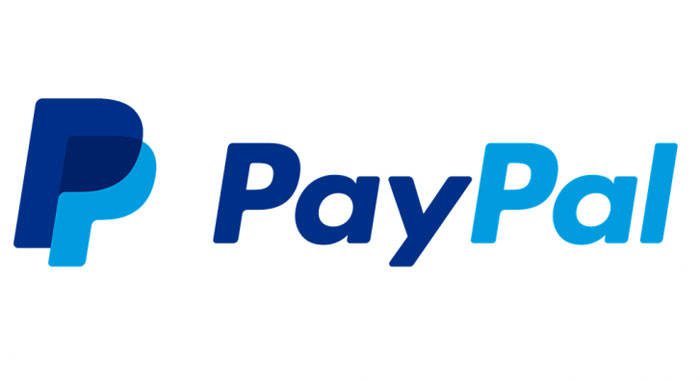The government of St. Vincent and the Grenadines is working with PayPal and other online payment platforms to facilitate transactions.
Currently, withdrawal cannot be made from SVG-registered PayPal accounts.
Minister of Finance Camillo Gonsalves said last week that while the issued related to Paypal and online payments are separate, they are also related.
“There is a lot of work in place that we are doing now with the Bank of St. Vincent and the Grenadines to make online payment easier. This is not PayPal,” he told a press conference.
“And then we are having conversations at the ministry level with PayPal itself, if you want to name that brand about removing whatever prohibition may be in place to facilitate that type of transactions taking place.”
He said there have been a number of concerns at the level of those corporations about money laundering and the like.
“And we have to assuage some of those concerns going forward but we are working assiduously to make that happen,” he said.







And where is the proof of that Mr. Minister? it is best you continue your dignified silence…. you are so much like your father, plenty to talk but little happening. Like how you told the former workers at Buccama that the hotel will reopen soon and they will be rehired by the new management…its been over two years now
This is certainly good news to hear. The government trust to reposition the country as a technology hub has certainly been a long and arduous process. The government correctly sees ICT as a new pillar of growth for the country but, for that to truly materialize a lot of work was necessary to bring the ICT infrastructure, laws, policy and regulatory frameworks, corporate involvement and financial interconnections into sync with each other. The process seemed to have begun in earnest with the liberalization of the telecommunications industry and the creation of ECTEL (via the Treaty of St. George’s), the NTRC (a local component of ECTEL) and SVG NCTI (National Center of Technological Innovation) along with the passing of relevant legislation and the setting up of regulatory frameworks. But if that was all there was to it, then we should have already seen a vibrant ICT sector. As it would turn out more work was needed and the Government’s commitment to the process can be seen in the creation of a local IXP (Internet Exchange Point), the hosting of local CTU (Caribbean Telecommunications Union) Roadshows, NTRC competitions along with the creation of the Universal Service Fund among others. In conjunction with two other OECS member states the Government also launched the CARCIP Project (Caribbean Regional Communications Infrastructure Program) as a vehicle to provide seed funding, by means of a capital grant via World Bank financing, to ICT entrepreneurs as well a business incubation service through SVG NCTI to simulate business creation and growth within the ICT sector. The recent signing of the Fiber Backbone Project with Digicel continues this process of ICT infrastructure development. But the early adopter entrepreneurs who attempted to capitalize on all this development soon found out that is was all well and good to start ICT businesses, but when it came to collection of online payments, the process was a nightmare. Most online payment processors require a US bank account and to set up a local merchant account to interface with a US account would cost these small businesses more than it’s worth. It is therefore welcoming to hear that the government is moving to address this issue and thus hopefully simplifying the process as well as reduce the cost of doing business online. This was one of the few remaining hurdles within the ICT space that needed significant government attention.
Moving forward, there is a need for more seed funding sources available to entrepreneurs. The lack thereof and or small amount of venture capitalists in the region continues to make it difficult for ICT Startups to survive to the point of financial stability. While the Eastern Caribbean Currency Union is flush with money, its banks are risk-averse and would rather implement all sorts of bank charges to supplement the dwindling income from their investment portfolios than to consider investing in small businesses. The ECCB lowered interest rates to 2%, just about where the inflation rate is, to encourage less saving and more spending and investment in the currency union. However, the current developing practice among banks in St Vincent of charging an ever increasing amount of bank fees, especially the account service charge has a net effect akin to a negative interest rate on the depositor and a high interest rate on borrowing. In theory a negative interest on the entire banking system, usually imposed by the central bank, is supposed to reduce the costs to borrow for companies and households, driving demand for loans and incentivizing investment and consumer spending. But the current practice only serves to fleece wealth from the depositors while artificially increases the wealth of the financial institutions instead of genuine wealth creation across the board.
I believe Youthman is a Russian interloper trying to protect the ULP under a new agreement with the Russians.
in this age of time where E-commerce is the fastest growing market , this is very important to rectify . keep up the good work and continue working for all citizens across party lines .
Camillo your staff must be working overtime, seeing all the things that your ministry is working on. All this time Ralf was short changing the people and now you playing catch up. Amazing how a simple thing like Paypal should be so complicated in SVG. I hope that you wouldn’t soon be taxing people for using the service.